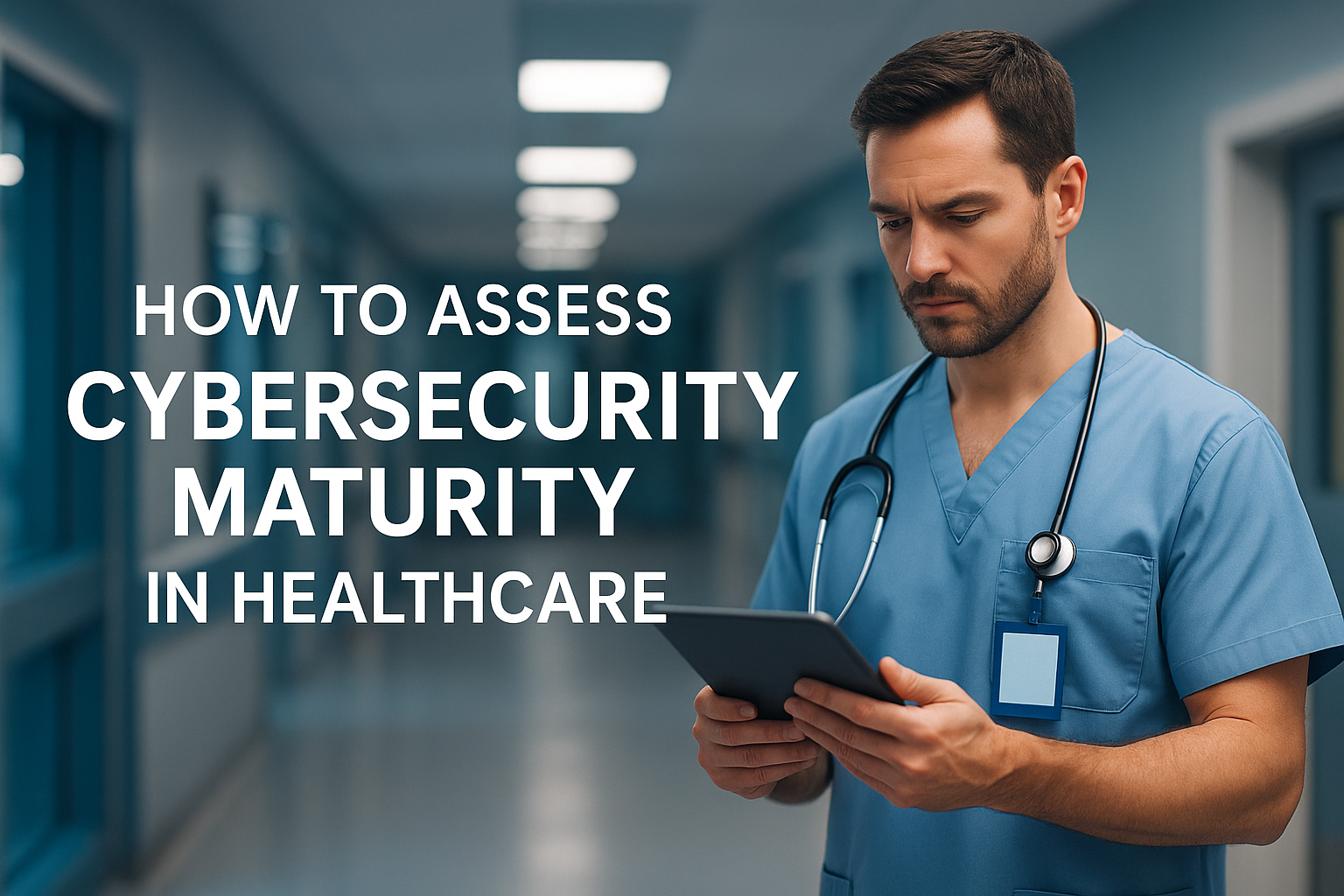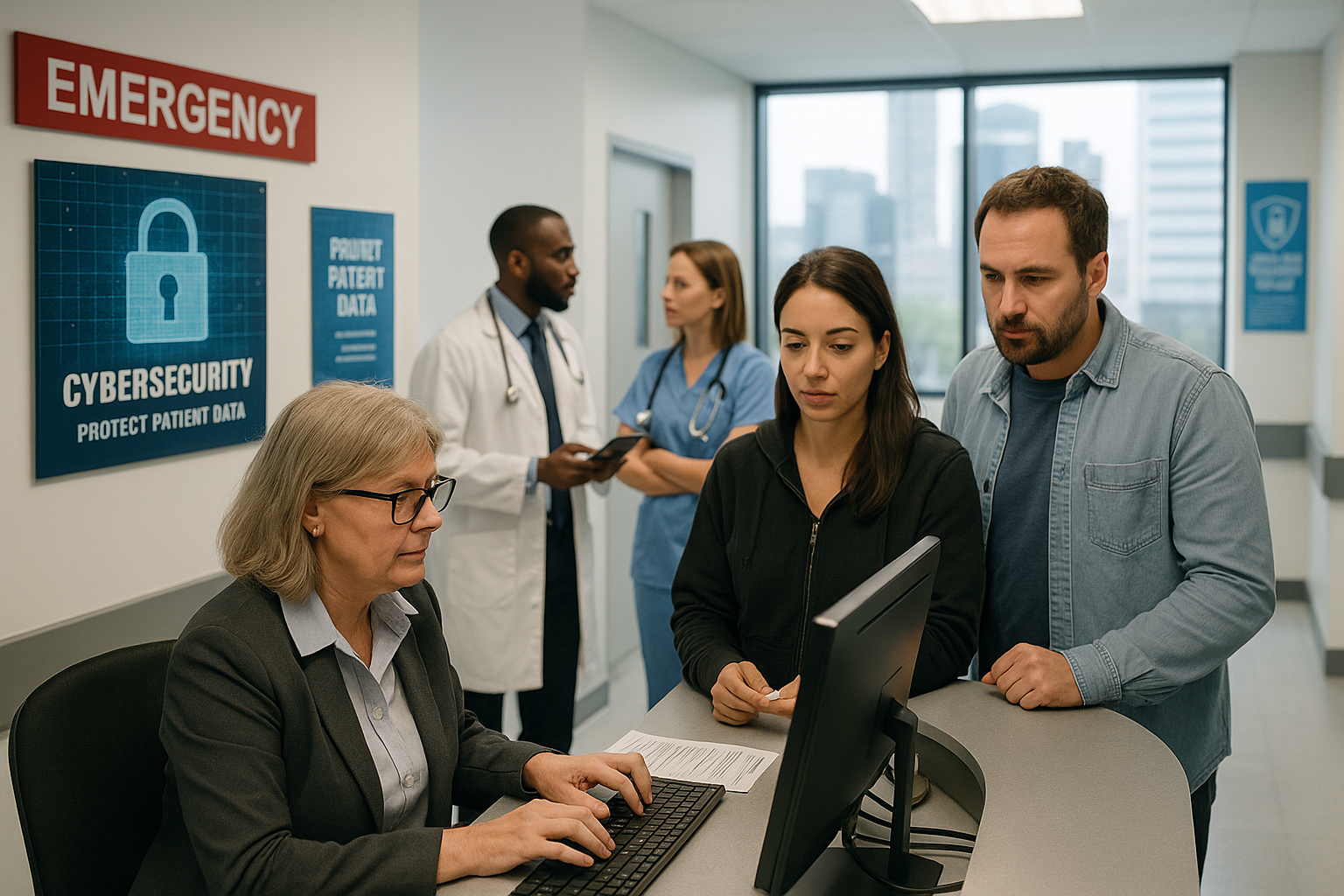
The Importance of Internal Audits in Healthcare
Internal audits play a foundational and strategic role in the healthcare sector, providing a critical mechanism to ensure ongoing compliance with complex and ever-evolving regulatory requirements such as HIPAA. These audits serve as an essential safeguard for patient data privacy and the integrity of sensitive information, while simultaneously supporting healthcare organizations in improving operational efficiency across all departments. Regularly scheduled internal audits identify areas where vulnerabilities exist—whether gaps in policy, process, or security—and empower organizations to implement targeted, effective corrective actions. By proactively assessing risk and monitoring for compliance issues, healthcare providers can not only avoid regulatory penalties and reputational damage but also create a more resilient environment, one that is better equipped to withstand audits and unforeseen threats.
Beyond protection and compliance, internal audits drive a cycle of continuous enhancement by surfacing actionable insights into the effectiveness of existing protocols and workflows. These insights are invaluable to executive and operational leaders striving to align organizational practices with the latest industry standards. Audits reveal opportunities to optimize patient care delivery, streamline documentation, improve system interoperability, and strengthen data governance. In a sector marked by rapid regulatory change and innovation, maintaining a disciplined, audit-driven approach gives healthcare providers a strategic edge—enabling them to anticipate compliance shifts, adapt to new requirements, and maintain a posture of readiness. As a result, internal audits are not just a compliance checkbox, but a catalyst for sustainable growth and operational excellence in today’s healthcare environments.Audit Season in Healthcare: Are You Ready?
Audit season is a critical period for healthcare providers, as it demands an intensive and systematic review of compliance frameworks, documentation standards, and security practices. This interval is far more than a regulatory exercise; it is a cornerstone for safeguarding the integrity of clinical operations, financial records, and, most importantly, the privacy and security of patient information. The significance of audit season is amplified by the multitude of stringent regulations governing the healthcare sector, most notably the Health Insurance Portability and Accountability Act (HIPAA) and its associated security and privacy rules. Adherence to these frameworks is non-negotiable, as they form the legal and ethical foundation for protecting healthcare data.
During audit season, organizations must thoroughly demonstrate their ability to meet or exceed these standards. Auditors scrutinize both procedural and technical controls to ensure that patient data is managed, stored, and transmitted securely. This includes validating access management, encryption strategies, incident response protocols, and ongoing security awareness efforts across all organizational levels. The stakes are high: lapses in compliance can result in severe financial penalties, mandatory corrective action plans, and—in extreme cases—restrictions on operations or erosion of public trust.
Besides the immediate risks of penalties or reputational damage, audit season presents an opportunity for healthcare organizations to evaluate and enhance their internal processes. By proactively embracing this review period, providers can identify process inefficiencies, benchmark current practices against regulatory updates, and initiate quality improvement initiatives that support safer and more effective patient care. With cyber threats continuing to evolve, audit season serves as both a test and a validation of an organization’s security posture and compliance maturity, ensuring healthcare entities are better positioned to defend against risks and deliver excellence in patient outcomes.
Being prepared for audit season means having all necessary documentation in order, ensuring that compliance checks have been conducted, and that all security protocols are up to date. It also involves training staff to understand the importance of compliance and the requirements they must meet during an audit. Preparation is key to a smooth audit process and can significantly reduce the stress and workload associated with it.
Top Audit Tools for Healthcare Providers
Preparing for an audit requires the right set of tools to streamline the process and ensure thoroughness. Here are some top audit tools that healthcare providers can utilize:
1. Compliance Management Software: Tools like ComplyAssistant and MedTrainer help track and manage compliance requirements, ensuring that all regulatory standards are met.
2. Document Management Systems: Systems such as M-Files and DocuWare offer secure and efficient ways to store, manage, and retrieve documentation, which is crucial during an audit.
3. Risk Management Solutions: Software like LogicGate and RiskWatch aid in identifying, assessing, and mitigating risks, which is a vital part of the audit process.
4. Security Information and Event Management (SIEM) Tools: Tools such as Splunk and IBM QRadar help monitor and analyze security events, ensuring that any potential breaches are quickly identified and addressed.
5. Audit Management Software: Solutions like AuditBoard and Gensuite streamline the audit process by providing templates, checklists, and automated workflows.
These tools not only ensure compliance but also enhance operational efficiency, making the audit process less daunting.
Case Studies: Successful Implementation of Audit Tools
Case studies provide valuable insights into how healthcare providers have successfully implemented audit tools to streamline their processes and enhance compliance. For example, a large healthcare network implemented a comprehensive compliance management software that integrated with their existing systems. This allowed them to automate compliance checks, significantly reducing the time and effort required during audit season.
Another case study involves a mid-sized hospital that adopted a document management system. By digitizing their records and implementing secure access controls, they were able to improve documentation retrieval times and ensure that all documents were readily available for audit. This not only made their audit process smoother but also enhanced their overall operational efficiency.
Future Trends in Internal Auditing for Healthcare
The future of internal auditing in healthcare is poised to be shaped by advancements in technology and a rapidly evolving regulatory landscape, leading to a more dynamic, automated, and risk-aware auditing process. Key to this transformation is the accelerated integration of artificial intelligence (AI) and machine learning (ML) across audit operations. These next-generation technologies empower audit teams to analyze vast troves of structured and unstructured data, delivering a new level of speed, precision, and actionable insights that are not possible with traditional manual reviews. AI- and ML-powered systems can automatically sift through electronic health records, billing data, security logs, and operational workflows, identifying emerging risks, policy violations, or unusual trends in real time. This enables auditors to proactively address emerging issues, reduce false positives, and maintain continuous compliance rather than relying on periodic spot checks.
The evolution of audit practices is also closely tied to the rise of cybersecurity as an existential focus for modern healthcare enterprises. As cyber threats become increasingly complex and relentless, regulatory bodies are issuing more stringent requirements regarding data security, breach detection, and response. Future internal audits will expand beyond basic IT controls to deeply assess the maturity of an organization’s entire cybersecurity ecosystem, including threat intelligence integration, network segmentation, privileged access management, and resilience against ransomware attacks. Emphasis will be placed on ongoing vulnerability assessments, penetration testing, and comprehensive incident response testing—moving security from a point-in-time audit topic to a continuous organizational priority. Auditors will increasingly work side by side with IT, security, and compliance teams to ensure a unified defense posture and to document how controls stand up under real-world attack scenarios.
Blockchain technology is rapidly transitioning from theory to practice in healthcare audits, providing a revolutionary approach to transparency and data integrity. Its decentralized, tamper-evident architecture provides an auditable, permanent record of every access or data manipulation event, making it an ideal platform for activities such as consent management, identity verification, financial reconciliation, and chain-of-custody documentation. Blockchain’s ability to establish trust, eliminate discrepancies, and sharply reduce opportunities for fraud or error is attracting attention from regulators, insurers, and leading healthcare organizations. Its adoption promises to enhance stakeholder confidence, making audit trails easier to review and verify, and dramatically increasing accountability across complex healthcare networks.
Looking forward, internal audit teams must not only keep pace with new technologies but also stay agile as regulations shift in response to both technological innovation and evolving risks. Successful organizations will invest in advanced audit platforms, foster collaboration between operational, technology, and compliance stakeholders, and promote a culture of perpetual readiness. By embracing innovation and prioritizing both data privacy and operational excellence, healthcare providers can leverage internal audits as a strategic lever—building safer systems, reducing risk, and earning the enduring trust of patients, partners, and regulators alike.
Audit season requires compliance checks, documentation review, and security verification.
During audit season, healthcare providers must conduct thorough and multifaceted compliance checks to confirm that they meet all required federal, state, and industry-specific regulations. This process involves a systematic review and validation of policies, procedures, technical safeguards, and administrative controls to ensure ongoing alignment with current legal obligations, including evolving HIPAA standards, PCI DSS for payment data, and any specialized frameworks based on the organization's scope.
This diligence extends beyond simply reviewing written procedures. Teams must analyze how these policies translate into daily operational practices, identifying discrepancies or outdated routines that could create points of exposure. Any gaps identified must be documented and swiftly addressed with updates to workflows or staff training. It’s also essential to keep a detailed record of all updates and corrective actions to demonstrate a proactive approach to compliance management.
Documentation review is another critical pillar of audit readiness. Auditors require access to meticulously organized, complete, and current records—ranging from access logs and policy updates to incident response exercises and risk assessments. All documentation must be easily accessible, logically indexed, and retained in compliance with both regulatory timelines and organizational retention standards. The quality and traceability of these records often serve as a direct reflection of an organization’s commitment to both compliance and operational excellence.
Security verification stands as a parallel priority. Healthcare organizations are expected to showcase robust security controls that protect data at rest and in transit, as well as confirm that only authorized personnel have access to sensitive information. This includes regular technical testing such as vulnerability assessments, penetration testing, and third-party security audits. Proactive patch management is essential; IT teams must ensure that all systems are up to date with the latest security updates, firmware revisions, and configuration hardening.
Moreover, organizations should maintain a well-documented and thoroughly tested incident response plan. This plan should define the detection, escalation, containment, and remediation steps for security incidents. Regular tabletop exercises and simulation drills ensure that cross-functional teams are familiar with their roles in the event of an incident and are equipped to act decisively, thereby reducing the potential impact.
By comprehensively addressing each element—compliance confirmation, documentation organization, and security validation—healthcare providers can approach audit season with clarity and confidence. This not only mitigates risk but also instills trust among patients, payers, and regulators, affirming the organization’s commitment to data privacy, quality care, and regulatory responsibility. With methodical, proactive efforts, the audit process becomes a driver of continual improvement rather than a disruptive event.
Cyber Advisors' experience in Healthcare audits and how we can help your go smoothly.
At Cyber Advisors, we understand the unique challenges that healthcare providers face during audit season. Our extensive experience in healthcare audits enables us to provide tailored solutions that address your specific needs and requirements. Our team of experts is well-versed in compliance requirements and can help you prepare for audits by conducting thorough compliance checks, reviewing your documentation, and verifying your security measures.
The addition of Stratum Security to the Cyber Advisors family further strengthens our healthcare security and audit capabilities. With Stratum Security's expertise in cybersecurity, we can provide comprehensive security assessments and ensure that your systems are protected against potential threats. Our goal is to help you navigate the complexities of audit season with ease and confidence.
Schedule your healthcare audit readiness consultation with us today
Don't wait until audit season is upon you. Schedule your healthcare audit readiness consultation with Cyber Advisors today and let our experience help guide you through the process.
Our team of experts will work with you to assess your current compliance status, identify areas for improvement, and develop a customized plan to ensure you are audit-ready. With our guidance, you can streamline your audit processes, mitigate risks, and enhance your operational efficiency.
Let Cyber Advisors' experience and expertise guide you through the audit readiness process. Contact us today to discover how we can help you achieve compliance and security excellence.



